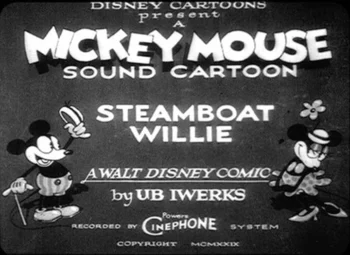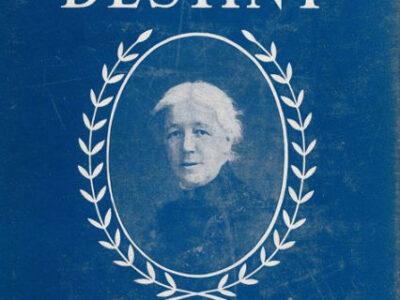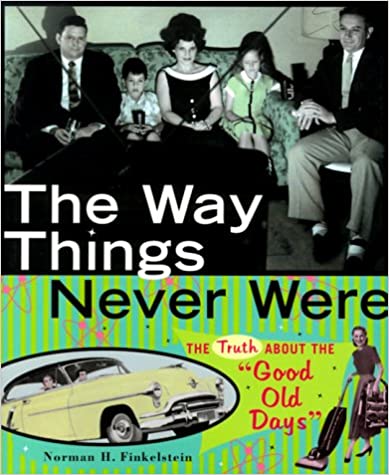I try to post something about this every year. This year is no exception.
In the United States, under U.S. copyright law, works published in 1928 and earlier are now in public domain. One can publish them or use them without securing copyright permission. In case you are wondering about the specifics, the Copyright Term Extension Act (passed in 1998) gave works published from 1923 through 1977 a 95-year term limit. They enter public domain on January 1 after the conclusion of the 95th year.
By the way, this happens with books and anything under copyright, like films and music.
Notable titles are on this year’s list:
D.H Lawrence, Lady Chatterley’s Lover
A. A. Milne, illustrations by E. H. Shepard, House at Pooh Corner (introduced the Tigger character)
Agatha Christie, The Mystery of the Blue Train
But the biggest news is that Steamboat Willie, the short cartoon directed by Walt Disney that introduced the Micky Mouse character, is now in the public domain. [By the way, next year Popeye the Sailor Man will enter public domain.]
Note that while these books are in the public domain, you can’t slap your name on them and claim you wrote them. There’s a word for that: plagiarism.
But What About Mickey Mouse and Disney?
I asked Jonathan Bailey, author with “Plagiarism Today” to reprint his article published on December 28, 2023, about this issue. He graciously granted permission. You should follow his fascinating site at https://www.plagiarismtoday.com/.
What Mickey Mouse Lapsing into the Public Domain Means

In just three days, one of the most anticipated events in copyright history will happen: Steamboat Willie, the first cartoon to feature Mickey Mouse, will lapse into the public domain.
Originally published in 1928, the copyright would have originally expired in 1956 but Disney exercised the option to extend that copyright to 1984. However, the Copyright Act of 1972 drastically changed the term of copyright protection, pushing its expiration back to 2004.
However, in 1998, Congress passed the Sonny Bono Copyright Term Extension Act, which added another 20 years to the copyright term in the United States, extending copyright all the way to January 1, 2024.
The act was and remains extremely controversial, with many derisively referring to the act as “The Mickey Mouse Copyright Extension Act” or “The Mickey Mouse Protection Act” thanks, in part, to Disney’s lobbying efforts to support the bill.
Many had wondered if there would be another attempt to extend the copyright term. However, that never happened and there was never any serious push or consideration for a new copyright extension.
As such, after decades of waiting, Steamboat Willie is in the final few days of copyright protection.
But what does that mean? Will Disney still own Mickey Mouse? What protections does the company still have for its iconic character? The answers are surprisingly complicated and there are a surprising number of things that we have no way of knowing at this point.
What Actually Changes on January 1
On January 1, 2024, the copyright term for the cartoon Steamboat Willie will expire, placing the work into the public domain.
While this sounds like (and is) a major development, there are several limitations to note.
First, the expiration only applies to Steamboat Willie the cartoon, not to Mickey Mouse as a whole character. Mickey, as a character, developed and changed over time with new elements, new designs and other traits.
For example, Steamboat Willie is a black and white cartoon, so Mickey does not have his red pants. Likewise, the modern version of Mickey is a vastly different design from the Steamboat Willie version, with a different appearance, personality and set of mannerisms. Those are elements from newer, and thus still copyright protected, works.
We have seen a similar situation with the character Sherlock Holmes. Up until very recently, most of the works featuring the detective were in the public domain though some later ones were not. This created a problem for those hoping to use the character as it was difficult to determine what elements were and were not protected. This set up legal battles and caused many to simply pay for a license rather than wade into the murky legal waters.
Much less of Mickey Mouse will be in the public domain. Where most Sherlock Holmes stories were out of copyright protection in the 2010s, only one Mickey cartoon lapses on January 1.
That, in turn, raises the second limitation: That the expiration only applies to copyright.
Mickey Mouse is unusual as a character as he is not just a copyright-protected character, but also the face, logo, and identity of one of the world’s largest companies.
To be clear, in 2003, the Supreme Court ruled that you cannot use trademark protection to extend copyright protection, so this does not mean that Steamboat Willie or this version of Mickey are still protected by copyright. However, it does limit what others can do with the character Mickey Mouse.
As illustrated in a post by Jennifer Jenkins, the director of Duke Center for the Study of the Public Domain, you need to be careful to ensure that any use you make of Steamboat Willie does not confuse others into thinking your work was produced by, endorsed by, or otherwise connected with Disney.
This enters a nebulous area. It is unclear what Disney may or may not consider to be confusing. However, that is the biggest wild card in this story: Disney itself.
Simply put, we do not know how and when Disney will defend Mickey and we have almost no precedent to go on.
The Disney Problem
In January 2022, another iconic Disney character was facing a similar lapsing: Winnie-the-Pooh.
Much like Mickey, his original story was lapsing into the public domain and there were significant questions about what this would mean for Disney. However, the answer turned out to be not much, at least not in the first two years.
Though we have seen some creative uses of the character (as presented in the first story), such as Mint Mobile’s advertisement and the horror movie (which likely would have been fine under fair use provisions), it has not led to an explosion of new material. Most importantly, there has been no major litigation surrounding the character.
However, Mickey Mouse is not Winnie-the-Pooh. Disney’s identity as a company is much more tied to Mickey and Mickey is also a character that Disney created, not one they acquired the rights to.
Public interest in Mickey Mouse is also much higher, meaning that it is likely that more artists, companies, and critics will be seeking to make use of the character. That sets the stage for legal conflicts over the character, especially with Disney’s historically litigious behavior.
Simply put, we do not know if and how Disney will address these issues or where it will draw the lines. Much of this is because 2019 was the first year anything lapsed into the public domain in two decades, but this is also the first time since then that an early work of a character that represents a major company has been in this position.
We know that Disney will likely be more aggressive in defending Mickey. We know that the public is more interested in reusing Mickey than they were Winnie-the-Pooh. We know that battle lines will be drawn. However, we do not know where those lines will be.
Though this is a story that will likely be drowned out by news from all the lawsuits over AI, it is going to be a major one to watch. As the public domain begins to grow again, it could be Mickey Mouse who sets some of the boundaries where public domain butts up against other areas of the law.
Bottom Line
So, what does Mickey Mouse lapsing into the public domain mean? The answer is not much.
The reality is that, despite the headline, Mickey Mouse as a character is not lapsing into the public domain. Rather, it is his first cartoon and the version of the character that was presented there.
Furthermore, the copyright’s expiration does not alter Disney’s trademark protection in the character, placing further limits on what can be done with it.
However, in many ways, we are entering uncharted waters. Of all the works to lapse into the public domain since 2019, Steamboat Willie is the first and only that is not only an iconic character that has enjoyed decades of popularity, but also the public identity of a major company.
This sets the stage for potential legal battles around the border between public domain works and trademark protection. However, right now, we do not know if and what Disney will target.
In truth, we will not know until the first lawsuits are filed or the first cease and desist letters are sent. After that, it will be even longer to wait for courts to rule and decisions to be made.
In short, while we know that the importance of Steamboat Willie entering the public domain is at least somewhat limited, we do not know exactly what those limitations are, and they will not be apparent for years to come.










